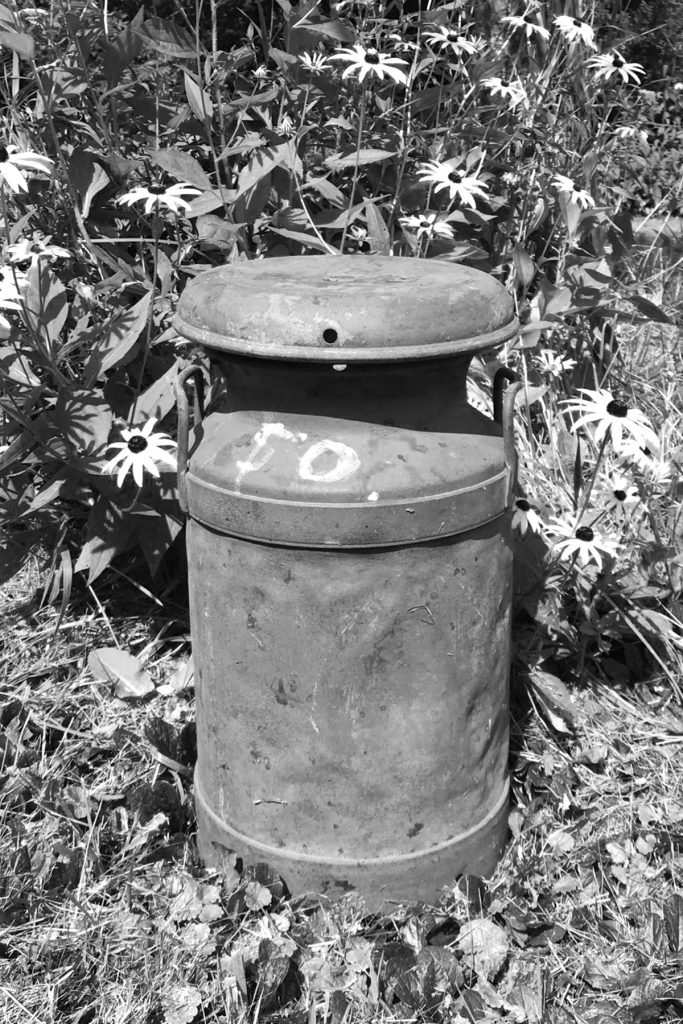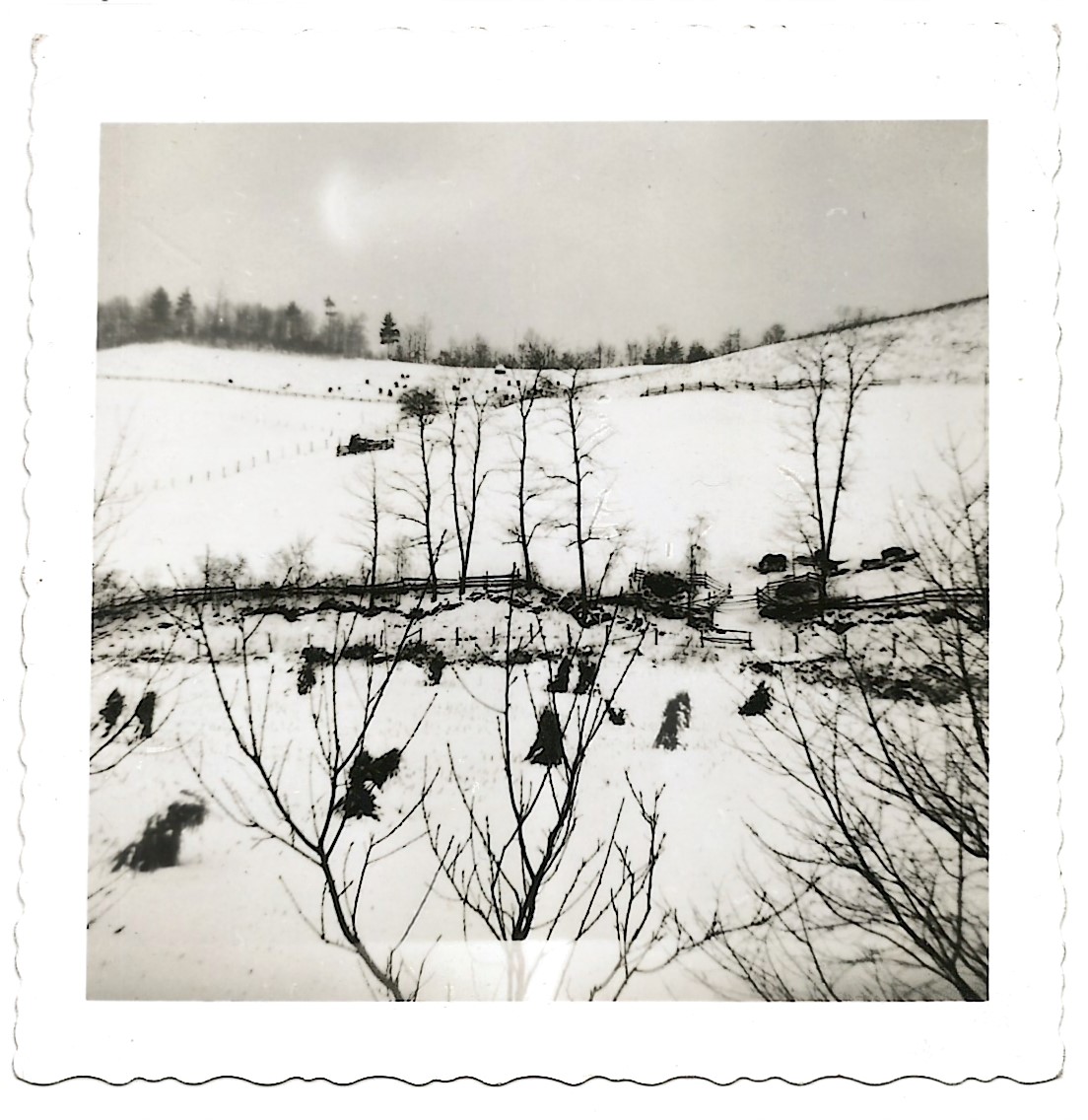In the 1930’s, ‘40’s and ‘50’s the milk truck and its faithful driver were an important part of rural life in Ashe County, NC. They traveled the dirt roads, not delivering milk to us but, picking up heavy metal cans filled with milk the farmers had ready for market. Every morning and evening the cows were milked. It was carefully strained and poured into the large cans and the lid was placed on tightly. The driver took hold of the handles on the can and lifted it, in one swift upward motion, and set it on the back of his truck.
Destination – Ashe County Cheese in West Jefferson, North Carolina. There it was used in making Cheddar Daisy Cheese Wheels, a delicious cheese. In the 1930’s the Kraft Corporation combined several small cheese making operations that were scattered over Ashe County into one location at West Jefferson. Kraft provided the means and expertise to produce the cheddar daisy wheels. They were covered in cheesecloth and coated with red wax. These were sold nationwide. The cheese plant was a source of income for the milk truck drivers and the dairy farmers.
One winter in the 1950’s it snowed and snowed. And the wind blew down through the meadows causing snow to drift on our road. On the straight stretch before starting up the hill the drifts were so high only the tops of the fence posts were visible. Neither our faithful mail carrier or faithful milk truck and driver were able to come up our road for almost two weeks. No road scraper came to push out the huge drift, so finally the men in the community cleared the snow from the road with shovels.
My sister, seven years older than me, and some cousins turned those two weeks into a holiday. With no school, we celebrated and played in the deep snow every day. We rode bobsleds, built snowmen and had snowball fights until we were tired and cold. Then we went inside. There was plenty of milk for hot chocolate to warm us up. All the cans of milk that could not go to market were put to good use. Someone got the idea of making snow cream but nobody knew how, so we guessed at it. My sister skimmed the heavy cream off some cans of milk and set the container in the snow for a while. We whipped the cream until it was stiff and added a little bit of sugar. And then came the best part – peach or strawberry preserves were added for flavor and fresh snow was gently folded in. Delicious!
It can be as hard to transport milk safely in the springtime as during the deep snows of winter. If you could have asked Old Bob he would have told you. Our neighbors had a gentle old gray workhorse named Bob. He had been with the family for many years. In the spring of that year, they drove their dairy cows some distance from the house to a new pasture. Carrying several pails of milk back to the house to get ready for market was a challenge. Maybe Old Bob could help. They built a small cart for him to pull two five gallon milk cans on. After milking, it was strained into the cans, the lids were put on and it was ready to go. Old Bob waited patiently and might have been taking a nap in the warm sunshine. The metal milk cans, metal buckets and strainer were all loaded onto the cart. At the last moment they noticed one of the lids on the can was not secure and gave it a mighty whack.
That woke Old Bob up! He took off running down the rough lane before anyone could holler “Woooaah!” The faster he went the more the metal cans and buckets rattled on the cart. The can with the lid problem turned over and left a trail of white behind as Old Bob raced down the road. He ran the half mile trek back to his barn before he stopped. Then the poor horse just stood there with his head down. I do hope Old Bob didn’t feel too bad about what happened. After all, he was a workhorse – used to hard work – not delicate jobs like pulling a milk cart. Phew. They say, Don’t cry over spilled milk, but I don’t know; a body would surely feel like it.
When I was young, there were not many vehicles in my area. When someone needed to go to West Jefferson they caught a ride with the milk truck. The driver was such a nice man and would also bring you back home in the evening. Those days are gone. We no longer set cans of milk beside the road each morning nor do we wait there to catch a ride to town.
Dedicated to my neighbor, friend and cousin – Martha


